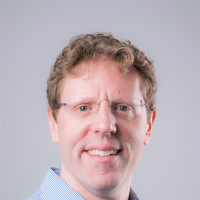
IEEE Computer Society and GBC/ACM
online 7:00 PM, Thursday, 23 March 2023
Specialization and the End of Moore's Law
Neil Thompson, MIT
Register in advance for this webinar at https://acm-org.zoom.us/webinar/register/5016750322508/WN_2k-jR3BqSvihFD8EnJnIzQ
After registering, you will receive a confirmation email containing information about joining the webinar. Abstract:
For decades, Moore’s Law made the economics of specialized chips unattractive because the upfront costs couldn’t be justified when the alternative was fast-improving CPUs. As Moore’s Law fades, however, this is changing. Not only is specialization becoming more economically attractive, but it is now one of the best ways to get performance improvements for many applications. In this talk, I will discuss (1) how the economics of specialization have changed, (2) how specialization is fracturing computing in ways commonly seen in other technologies, and (3) how long we can expect the gains from specialization to make up for the slowdown in Moore’s Law.
Bio:
Neil Thompson is the Director of the FutureTech research project at MIT’s Computer Science and Artificial Intelligence Lab, where his group studies the economic and technical foundations of progress in computing. He is also a Principal Investigator at MIT’s Initiative on the Digital Economy.
Previously, Neil was an Assistant Professor of Innovation and Strategy at the MIT Sloan School of Management, where he co-directed the Experimental Innovation Lab (X-Lab), and a Visiting Professor at the Laboratory for Innovation Science at Harvard. He has advised businesses and government on the future of Moore’s Law, has been on National Academies panels on transformational technologies and scientific reliability, and is part of the Council on Competitiveness’ National Commission on Innovation & Competitiveness Frontiers.
He has a PhD in Business and Public Policy from Berkeley, where he also did Masters degrees in Computer Science and Statistics. He also has a masters in Economics from the London School of Economics, and undergraduate degrees in Physics and International Development. Prior to academia, he worked at organizations such as Lawrence Livermore National Laboratory, Bain and Company, the United Nations, the World Bank, and the Canadian Parliament.
This joint meeting of the Boston Chapter of the IEEE Computer Society and GBC/ACM will be online only due to the COVID-19 lockdown.
Up-to-date information about this and other talks is available online at https://ewh.ieee.org/r1/boston/computer/. You can sign up to receive updated status information about this talk and informational emails about future talks at https://mailman.mit.edu/mailman/listinfo/ieee-cs, our self-administered mailing list.
Updated: Jan 22, 2023--webbot bot="TimeStamp" i-checksum="16995" endspan -->.